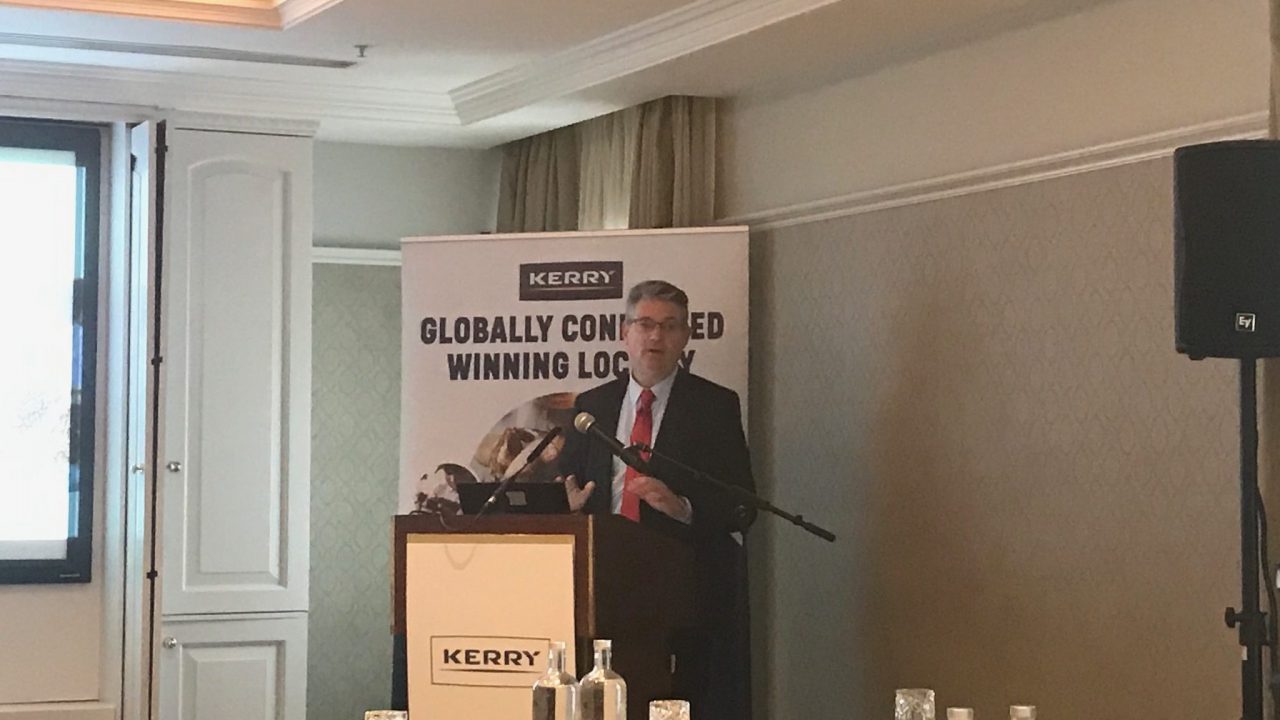Sustainability underpins everything that today’s consumer is looking for, according to Kerry Group CEO Edmond Scanlon.
The CEO was speaking at the launch of the group’s preliminary results for the year ended December 31, 2019, which was held yesterday, Tuesday, February 18, in Dublin.
“Underpinning everything that the consumer is looking for is sustainability,” Scanlon said.
“More and more customers are becoming aware of the sustainable impact – or lack of sustainable impact – that the products that they are consuming are having on the planet.
And I think if you take the plant-based products, that’s a good example where nutrition isn’t necessarily driving consumption; it’s more sustainability that’s driving consumption. I think that’s an important point.
Scanlon described sustainability as “nothing new” for Kerry, drawing on the group’s dairy co-op roots.
“Every day there are a billion products consumed that contain a Kerry ingredient or a Kerry solution. So that gives us a tremendous opportunity to have a very significant positive impact.”
Sustainability strategy
In a summary of the Kerry Group sustainability strategy, shown yesterday, the CEO pointed to the group’s 2030 commitments – namely: sustainable agriculture; climate action; and circularity.
Finally, on circularity, the aim is for 100% of waste to be recovered, as well as a 50% reduction in food waste.
Official launch in May
Responding to a question from AgriLand as to the finer details of the group’s sustainability strategy, Scanlon said:
“We’re actually about to officially launch that 2030 strategy in May.
We’ve been working on this for the past year in terms of our 2030 strategy. Since 2015 ,we’ve had metrics in place; we’ve made a lot of progress – but frankly the metrics we’ve put in place in 2015 weren’t aggressive enough in my opinion.
“So I think, when you see our sense of metrics, see the proof points that we have around these sets of metrics, I think they’ll be I would say more appropriate for today’s environment. Because that has just moved on leaps and bounds since 2015; it’s a different world.
“These [metrics] are well baled into the organisation. When we look into capital investments, capital allocation, there is strong sustainability metrics around them.
“It’s embedded in the organisation – but I want it to be embedded in the organisation before we go external with it,” Scanlon concluded.
